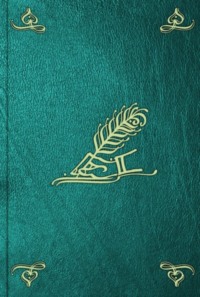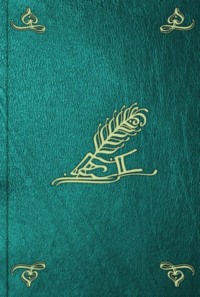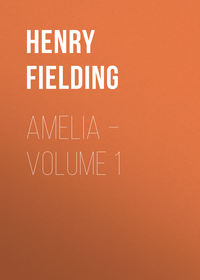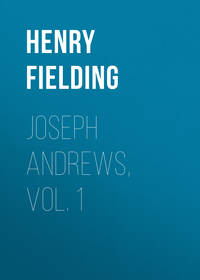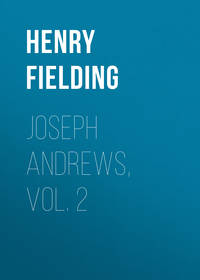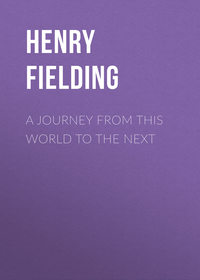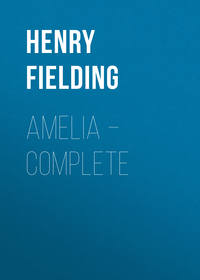 полная версия
полная версияThe Works of Henry Fielding, vol. 12
Nood. [1]Go then to hell, like rascals as you are, And give our service to the bailiffs there.
[Footnote 1: Nourmahal sends the same message to heaven;
For I would have you, when you upwards move,Speak kindly of us to our friends above. —AurengzebeWe find another to hell, in the Persian Princess:
Villain, get thee downTo hell, and tell them that the fray's begun.]
Thumb. Thus perish all the bailiffs in the land, Till debtors at noon-day shall walk the streets, And no one fear a bailiff or his writ.
SCENE III. – _The Princess Huncamunca's Apartment_. Huncamunca, Cleora, Mustacha
Hunc. [1]Give me some music – see that it be sad.
[Footnote 1: Anthony gave the same command in the same words.]
CLEORA sings.
Cupid, ease a love-sick maid,Bring thy quiver to her aid;With equal ardour wound the swain,Beauty should never sigh in vain.Let him feel the pleasing smart,Drive the arrow through his heart:When one you wound, you then destroy;When both you kill, you kill with joy.Hunc. [1]O Tom Thumb! Tom Thumb! wherefore art thou Tom Thumb?Why hadst thou not been born of royal race?Why had not mighty Bantam been thy father?Or else the king of Brentford, Old or New?[Footnote 1: Oh! Marius, Marius, wherefore art thou Marius? —Olway's Marius. ]
Must. I am surprised that your highness can give yourself a moment's uneasiness about that little insignificant fellow,[1] Tom Thumb the Great – one properer for a plaything than a husband. Were he my husband his horns should be as long as his body. If you had fallen in love with a grenadier, I should not have wondered at it. If you had fallen in love with something; but to fall in love with nothing!
[Footnote 1: Nothing is more common than these seeming contradictions; such as,
Haughty weakness. —VictimGreat small world. —Noah's Flood]
Hunc. Cease, my Mustacha, on thy duty cease.The zephyr, when in flowery vales it plays,Is not so soft, so sweet as Thummy's breath.The dove is not so gentle to its mate.Must. The dove is every bit as proper for a husband. – Alas! Madam, there's not a beau about the court looks so little like a man. He is a perfect butterfly, a thing without substance, and almost without shadow too.
Hunc. This rudeness is unseasonable: desist;Or I shall think this railing comes from love.Tom Thumb's a creature of that charming form,That no one can abuse, unless they love him.Must. Madam, the king.
SCENE IV. – KING, HUNCAMUNCA
King. Let all but Huncamunca leave the room.
[Exeunt CLEORA and MUSTACHA.
Daughter, I have observed of late some grief.Unusual in your countenance: your eyes![1]That, like two open windows, used to shewThe lovely beauty of the rooms within,Have now two blinds before them. What is the cause?Say, have you not enough of meat and drink?We've given strict orders not to have you stinted.[Footnote 1: Lee hath improved this metaphor:
Dost thou not view joy peeping from my eyes,The casements open'd wide to gaze on thee?So Rome's glad citizens to windows rise,When they some young triumpher fain would see.– Gloriana.]
Hunc. Alas! my lord, I value not myself That once I eat two fowls and half a pig; [1]Small is that praise! but oh! a maid may want What she can neither eat nor drink.
[Footnote 1: Almahide hath the same contempt for these appetites:
To eat and drink can no perfection be.– Conquest of Granada.The earl of Essex is of a different opinion, and seems to place the chief happiness of a general therein:
Were but commanders half so well rewarded,Then they might eat. —Banks's Earl of Essex.But, if we may believe one who knows more than either, the devil himself, we shall find eating to be an affair of more moment than is generally imagined:
Gods are immortal only by their food.– Lucifer; in the State of Innocence.]
King. What's that?
Hunc. O[1] spare my blushes; but I mean a husband.
[Footnote 1: "This expression is enough of itself," says Mr D., "utterly to destroy the character of Huncamunca!" Yet we find a woman of no abandoned character in Dryden adventuring farther, and thus excusing herself:
To speak our wishes first, forbid it pride,Forbid it modesty; true, they forbid it,But Nature does not. When we are athirst,Or hungry, will imperious Nature stay,Nor eat, nor drink, before 'tis bid fall on? —Cleomenes.Cassandra speaks before she is asked: Huncamunca afterwards.Cassandra speaks her wishes to her lover: Huncamunca only to her father.]
King. If that be all, I have provided one,A husband great in arms, whose warlike swordStreams with the yellow blood of slaughter'd giants,Whose name in Terra Incognita is known,Whose valour, wisdom, virtue make a noiseGreat as the kettle-drums of twenty armies.Hunc. Whom does my royal father mean?
King. Tom Thumb.
Hunc. Is it possible?
King. Ha! the window-blinds are gone; [1]A country-dance of joy is in your face. Your eyes spit fire, your cheeks grow red as beef.
[Footnote 1:
Her eyes resistless magick bear;Angels, I see, and gods, are dancing there– Lee's Sophonisba.]
Hunc. O, there's a magick-musick in that sound,Enough to turn me into beef indeed!Yes, I will own, since licensed by your word,I'll own Tom Thumb the cause of all my grief.For him I've sigh'd, I've wept, I've gnaw'd my sheets.King. Oh! thou shalt gnaw thy tender sheets no more. A husband thou shalt have to mumble now.
Hunc. Oh! happy sound! henceforth let no one tell That Huncamunca shall lead apes in hell. Oh! I am overjoy'd!
King. I see thou art. [1] Joy lightens in thy eyes, and thunders from thy brows; Transports, like lightning, dart along thy soul, As small-shot through a hedge.
[Footnote 1: Mr Dennis, in that excellent tragedy called Liberty
Asserted, which is thought to have given so great a stroke to the late
French king, hath frequent imitations of this beautiful speech of king
Arthur:
Conquest light'ning in his eyes, and thund'ring in his arm,
Joy lighten'd in her eyes.
Joys like lightning dart along my soul.
]
Hunc. Oh! say not small.
King. This happy news shall on our tongue ride post,Ourself we bear the happy news to Thumb.Yet think not, daughter, that your powerful charmsMust still detain the hero from his arms;Various his duty, various his delight;Now in his turn to kiss, and now to fight,And now to kiss again. So, mighty[1] Jove,When with excessive thund'ring tired above,Comes down to earth, and takes a bit – and thenFlies to his trade of thund'ring back again.[Footnote 1:
Jove, with excessive thund'ring tired above,Comes down for ease, enjoys a nymph, and thenMounts dreadful, and to thund'ring goes again. —Gloriana.]
SCENE V. – GRIZZLE, HUNCAMUNCA
[1]Griz. Oh! Huncamunca, Huncamunca, oh!Thy pouting breasts, like kettle-drums of brass,Beat everlasting loud alarms of joy;As bright as brass they are, and oh, as hard.Oh! Huncamunca, Huncamunca, oh![Footnote 1: This beautiful line, which ought, says Mr W – , to be written in gold, is imitated in the New Sophonisba:
Oh! Sophonisba; Sophonisba, oh!Oh! Narva; Narva, oh!The author of a song called Duke upon Duke hath improved it:
Alas! O Nick! O Nick, alas!Where, by the help of a little false spelling, you have two meanings in the repeated words. ]
Hunc. Ha! dost thou know me, princess as I am, [1]That thus of me you dare to make your game?
[Footnote 1: Edith, in the Bloody Brother, speaks to her lover in the same familiar language:
Your grace is full of game.
]
Griz. Oh! Huncamunca, well I know that youA princess are, and a king's daughter, too;But love no meanness scorns, no grandeur fears;Love often lords into the cellar bears,And bids the sturdy porter come up stairs.For what's too high for love, or what's too low?Oh! Huncamunca, Huncamunca, oh!Hunc. But, granting all you say of love were true,My love, alas! is to another due.In vain to me a suitoring you come,For I'm already promised to Tom Thumb.Griz. And can my princess such a durgen wed?One fitter for your pocket than your bed!Advised by me, the worthless baby shun,Or you will ne'er be brought to bed of one.Oh take me to thy arms, and never flinch,Who am a man, by Jupiter! every inch.[1]Then, while in joys together lost we lie,I'll press thy soul while gods stand wishing by.[Footnote 1:
Traverse the glitt'ring chambers of the sky,Borne on a cloud in view of fate I'll lie,And press her soul while gods stand wishing by.– Hannibal.]
Hunc. If, sir, what you insinuate you prove,All obstacles of promise you remove;For all engagements to a man must fall,Whene'er that man is proved no man at all.Griz. Oh! let him seek some dwarf, some fairy miss,Where no joint-stool must lift him to the kiss!But, by the stars and glory! you appearMuch fitter for a Prussian grenadier;One globe alone on Atlas' shoulders rests,Two globes are less than Huncamunca's breasts;The milky way is not so white, that's flat,And sure thy breasts are full as large as that.Hunc. Oh, sir, so strong your eloquence I find,It is impossible to be unkind.Griz. Ah! speak that o'er again, and let the[1] soundFrom one pole to another pole rebound;The earth and sky each be a battledore,And keep the sound, that shuttlecock, up an hour:To Doctors' Commons for a licence ISwift as an arrow from a bow will fly.[Footnote 1:
Let the four winds from distant corners meet,And on their wings first bear it into France;Then back again to Edina's proud walls,Till victim to the sound th' aspiring city falls.– Albion Queens.]
Hunc. Oh, no! lest some disaster we should meet'Twere better to be married at the Fleet.Griz. Forbid it, all ye powers, a princess shouldBy that vile place contaminate her blood;My quick return shall to my charmer proveI travel on the [1]post-horses of love.[Footnote 1: I do not remember any metaphors so frequent in the tragic poets as those borrowed from riding post:
The gods and opportunity ride post. —Hannibal.– Let's rush together,For death rides post! —Duke of Guise.Destruction gallops to thy murder post. —Gloriana.]
Hunc. Those post-horses to me will seem too slow Though they should fly swift as the gods, when they Ride on behind that post-boy, Opportunity.
SCENE VI. – TOM THUMB, HUNCAMUNCA
Thumb. Where is my princess? where's my Huncamunca? Where are those eyes, those cardmatches of Jove, That[1] light up all with love my waxen soul? Where is that face which artful nature made [2] In the same moulds where Venus' self was cast?
[Footnote 1: This image, too, very often occurs:
– Bright as when thy eyeFirst lighted up our loves. —Aurengzebe.'Tis not a crown alone lights up my name. —Busiris.]
[Footnote 2: There is great dissension among the poets concerning the method of making man. One tells his mistress that the mould she was made in being lost, Heaven cannot form such another. Lucifer, in Dryden, gives a merry description of his own formation:
Whom heaven, neglecting, made and scarce design'd,But threw me in for number to the rest. —State of Innocence.In one place the same poet supposes man to be made of metal:I was form'dOf that coarse metal which, when she was madeThe gods threw by for rubbish. —All for Love.In another of dough:
When the gods moulded up the paste of man,Some of their clay was left upon their hands,And so they made Egyptians. —Cleomenes.In another of clay:
– Rubbish of remaining clay. —Sebastian.One makes the soul of wax:Her waxen soul begins to melt apace. —Anna Bullen.Another of flint:
Sure our two souls have somewhere been acquaintedIn former beings, or, struck out together,One spark to Africk flew, and one to Portugal. —Sebastian.To omit the great quantities of iron, brazen, and leaden souls, which are so plenty in modern authors – I cannot omit the dress of a soul as we find it in Dryden:
Souls shirted but with air. —King Arthur.
Nor can I pass by a particular sort of soul in a particular sort of description in the New Sophonisba:
Ye mysterious powers,– Whether thro' your gloomy depths I wander,Or on the mountains walk, give me the calm,The steady smiling soul, where wisdom shedsEternal sunshine, and eternal joy.]
Hunc. [1]Oh! what is music to the ear that's deaf,Or a goose-pie to him that has no taste?What are these praises now to me, since IAm promised to another?[Footnote 1: This line Mr Banks has plunder'd entire in his Anna
Bullen.]
Thumb. Ha! promised?
Hunc. Too sure; 'tis written in the book of fate.
Thumb. [1]Then I will tear away the leafWherein it's writ; or, if fate won't allowSo large a gap within its journal-book,I'll blot it out at least.[Footnote 1:
Good Heaven! the book of fate before me lay,But to tear out the journal of that day.Or, if the order of the world belowWill not the gap of one whole day allow,Give me that minute when she made her vow.– Conquest of Granada.]
SCENE VII. – GLUMDALCA, TOM THUMB, HUNCAMUNCA
Glum. [1]I need not ask if you are Huncamunca. Your brandy-nose proclaims —
[Footnote 1: I know some of the commentators have imagined that Mr Dryden, in the altercative scene between Cleopatra and Octavia, a scene which Mr Addison inveighs against with great bitterness, is much beholden to our author. How just this their observation is I will not presume to determine.]
Hunc. I am a princess; Nor need I ask who you are.
Glum. A giantess; The queen of those who made and unmade queens.
Hunc. The man whose chief ambition is to be My sweetheart hath destroy'd these mighty giants.
Glum. Your sweetheart? Dost thou think the man who once Hath worn my easy chains will e'er wear thine?
Hunc. Well may your chains be easy, since, if fame Says true, they have been tried on twenty husbands. [1]The glove or boot, so many times pull'd on, May well sit easy on the hand or foot.
[Footnote 1: "A cobling poet indeed," says Mr D.; and yet I believe we may find as monstrous images in the tragick authors: I'll put down one:
Untie your folded thoughts, and let them dangle loose as a bride's hair. —Injured Love.
Which line seems to have as much title to a milliner's shop as our author's to a shoemaker's.]
Glum. I glory in the number, and when I Sit poorly down, like thee, content with one, Heaven change this face for one as bad as thine.
Hunc. Let me see nearer what this beauty is That captivates the heart of men by scores. [Holds a candle to her face. Oh! Heaven, thou art as ugly as the devil.
Glum. You'd give the best of shoes within your shop To be but half so handsome.
Hunc. Since you come [1]To that, I'll put my beauty to the test: Tom Thumb, I'm yours, if you with me will go.
[Footnote 1: Mr L – takes occasion in this place to commend the great care of our author to preserve the metre of blank verse, in which Shakspeare, Jonson, and Fletcher, were so notoriously negligent; and the moderns, in imitation of our author, so laudably observant:
Then doesYour majesty believe that he can beA traitor? —Earl of Essex.Every page of Sophonisba gives us instances of this excellence. ]
Glum. Oh! stay, Tom Thumb, and you alone shall fill That bed where twenty giants used to lie.
Thumb. In the balcony that o'erhangs the stage,I've seen a whore two 'prentices engage;One half-a-crown does in his fingers hold,The other shews a little piece of gold;She the half-guinea wisely does purloin,And leaves the larger and the baser coin.Glum. Left, scorn'd, and loathed for such a chit as this; [1] I feel the storm that's rising in my mind, Tempests and whirlwinds rise, and roll, and roar. I'm all within a hurricane, as if [2] The world's four winds were pent within my carcase. [3] Confusion, horror, murder, guts, and death!
[Footnote 1: Love mounts and rolls about my stormy mind.
– Aurengzebe.
Tempests and whirlwinds thro' my bosom move.
– Cleomenes.
]
[Footnote 2:
With such a furious tempest on his brow,As if the world's four winds were pent withinHis blustering carcase. —Anna Bullen.]
[Footnote 3: Verba Tragica.]
SCENE VIII. – KING, GLUMDALCA
King. [1] Sure never was so sad a king as I! [2] My life is worn as ragged as a coat A beggar wears; a prince should put it off. [3] To love a captive and a giantess! Oh love! oh love! how great a king art thou! My tongue's thy trumpet, and thou trumpetest, Unknown to me, within me. [4] Oh, Glumdalca! Heaven thee designed a giantess to make, But an angelick soul was shuffled in. [5] I am a multitude of walking griefs, And only on her lips the balm is found [6] To spread a plaster that might cure them all.
[Footnote 1: This speech has been terribly mauled by the poet.]
[Footnote 2:
– My life is worn to rags,Not worth a prince's wearing. —Love Triumphant.]
[Footnote 3:
Must I beg the pity of my slave?Must a king beg? But love's a greater king,A tyrant, nay, a devil, that possesses me.He tunes the organ of my voice and speaks,Unknown to me, within me. —Sebastian.]
[Footnote 4:
When thou wert form'd, heaven did a man begin;But a brute soul by chance was shuffled in. —Aurengzebe.]
[Footnote 5:
I am a multitudeOf walking griefs. —New Sophonisba.]
[Footnote 6:
I will take thy scorpion blood,And lay it to my grief till I have ease. —Anna Bullen.]
Glum. What do I hear? King. What do I see? Glum. Oh! King. Ah! [1]Glum. Ah! wretched queen! King. Oh! wretched king! [2]Glum. Ah! King. Oh!
[Footnote 1: Our author, who everywhere shews his great penetration into human nature, here outdoes himself: where a less judicious poet would have raised a long scene of whining love, he, who understood the passions better, and that so violent an affection as this must be too big for utterance, chuses rather to send his characters off in this sullen and doleful manner, in which admirable conduct he is imitated by the author of the justly celebrated Eurydice. Dr Young seems to point at this violence of passion:
– Passion choaks
Their words, and they're the statues of despair.
And Seneca tells us, "Curse leves loquuntur, ingentes stupent." The story of the Egyptian king in Herodotus is too well known to need to be inserted; I refer the more curious reader to the excellent Montaigne, who hath written an essay on this subject.]
[Footnote 2:
To part is death.Tis death to part.Ah!Oh —Don Carlos.]
SCENE IX. – TOM THUMB, HUNCAMUNCA, Parson
Par. Happy's the wooing that's not long a doing; For, if I guess right, Tom Thumb this night Shall give a being to a new Tom Thumb.
Thumb. It shall be my endeavour so to do.
Hunc. Oh! fie upon you, sir, you make me blush.
Thumb. It is the virgin's sign, and suits you well: [1] I know not where, nor how, nor what I am; [2] I am so transported, I have lost myself.
[Footnote 1:
Nor know I whetherWhat am I, who, or where. —Busiris.I was I know not what, and am I know not how.– Gloriana.]
[Footnote 2: To understand sufficiently the beauty of this passage, it will be necessary that we comprehend every man to contain two selfs. I shall not attempt to prove this from philosophy, which the poets make so plainly evident.
One runs away from the other:
– Let me demand your majesty,Why fly you from yourself? —Duke of Guise.In a second, one self is a guardian to the other:Leave me the care of me. —Conquest of Granada.Again:
Myself am to myself less near. —Ibid.In the same, the first self is proud of the second:I myself am proud of me. —State of Innocence.In a third, distrustful of him:
Fain I would tell, but whisper it in my ear,That none besides might hear, nay, not myself.– Earl of Essex.In a fourth, honours him:
I honour Rome,And honour too myself. —Sophonisba.In a fifth, at variance with him:
Leave me not thus at variance with myself. —Busiris.Again, in a sixth:
I find myself divided from myself. —Medea.She seemed the sad effigies of herself. —Banks.Assist me, Zulema, if thou would'st beThe friend thou seem'st, assist me against me.– Albion Queens.From all which it appears that there are two selfs; and therefore Tom Thumb's losing himself is no such solecism as it hath been represented by men rather ambitious of criticising than qualified to criticise. ]
Hunc. Forbid it, all ye stars, for you're so small.That were you lost, you'd find yourself no more.So the unhappy sempstress once, they say,Her needle in a pottle, lost, of hay;In vain she look'd, and look'd, and made her moan,For ah, the needle was forever gone.Par. Long may they live, and love, and propagate, Till the whole land be peopled with Tom Thumbs! [1] So, when the Cheshire cheese a maggot breeds, Another and another still succeeds: By thousands and ten thousands they increase, Till one continued maggot fills the rotten cheese.
[Footnote 1: Mr F – imagines this parson to have been a Welsh one from his simile.]
SCENE X. – NOODLE, and then GRIZZLE
Nood. [1] Sure, Nature means to break her solid chain,Or else unfix the world, and in a rageTo hurl it from its axletree and hinges;All things are so confused, the king's in love,The queen is drunk, the princess married is.[Footnote 1: Our author hath been plundered here, according to custom
Great nature, break thy chain that links togetherThe fabrick of the world, and make a chaosLike that within my soul. —Love Triumphant.– Startle Nature, unfix the globe,And hurl it from its axletree and hinges.– Albion Queens.The tott'ring earth seems sliding off its props.]
Griz. Oh, Noodle! Hast thou Huncamunca seen?
Nood. I have seen a thousand sights this day, where none Are by the wonderful bitch herself outdone. The king, the queen, and all the court, are sights.
Griz. [1] D – n your delay, you trifler! are you drunk, ha! I will not hear one word but Huncamunca.
[Footnote 1:
D – n your delay, ye torturers, proceed;I will not hear one word but Almahide.– Conquest of Granada.]
Nood. By this time she is married to Tom Thumb.
Griz. [1] My Huncamunca!
[Footnote 1: Mr Dryden hath imitated this in All for Love.]
Nood. Your Huncamunca, Tom Thumb's Huncamunca, every man's Huncamunca.
Griz. If this be true, all womankind are damn'd.
Nood. If it be not, may I be so myself.
Griz. See where she comes! I'll not believe a word Against that face, upon whose [1] ample brow Sits innocence with majesty enthroned.
[Footnote 1: This Miltonic style abounds in the New Sophonisba:
– And on her ample browSat majesty.]
GRIZZLE, HUNCAMUNCAGriz. Where has my Huncamunca been? See here. The licence in my hand!
Hunc. Alas! Tom Thumb.
Griz. Why dost thou mention him?
Hunc. Ah, me! Tom Thumb.
Griz. What means my lovely Huncamunca?
Hunc. Hum!
Griz. Oh! speak.
Hunc. Hum!
Griz. Ha! your every word is hum:[1] You force me still to answer you, Tom Thumb.Tom Thumb – I'm on the rack – I'm in a flame.[2]Tom Thumb, Tom Thumb, Tom Thumb – you love the name;So pleasing is that sound, that were you dumb,You still would find a voice to cry Tom Thumb.[Footnote 1:
Your every answer still so ends in that,You force me still to answer you Morat. —Aurengzebe.]


